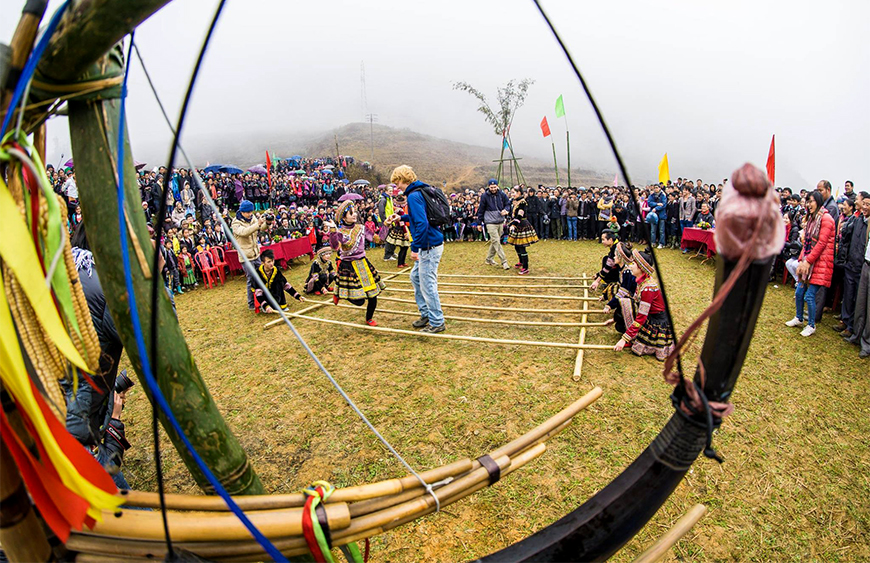Due to the high level of ethnic diversity in the district, there are many cultural festivals held throughout the year in Sapa. The majority of the ethnic groups in Vietnam subscribe to ancestor worship as well as the worship of spirits said to control different aspects of life such as weather or the harvest. Besides their daily rituals, there are many colourful and exciting festivals that serve as a way to worship and give thanks to these spirits.
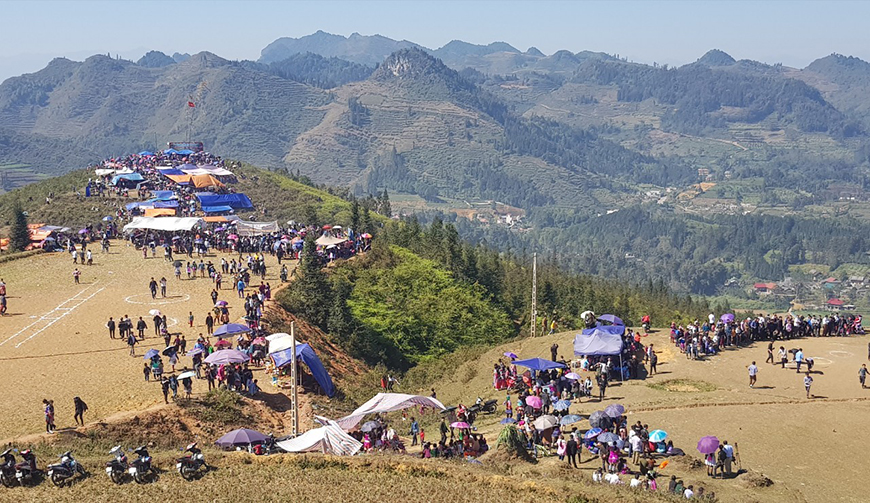
Roong Pooc
This festival started with the Giay people and is celebrated in early January of the lunar calendar. Taking place in Ta Van Village, it draws crowds from all the surrounding villages and has now become the biggest festival in Muong Ha Valley with thousands of people attending each year. The festival celebrates the Mother of the Land, and people pray for a prosperous harvest during the upcoming farming season.
As well as worshipping, the people also take part in traditional games, songs and dances. People are often reunited with old friends they have not seen since last year, and younger people use the occasion to look for a suitable husband or wife. The atmosphere is jovial, and delicious food and drink is served throughout its duration.
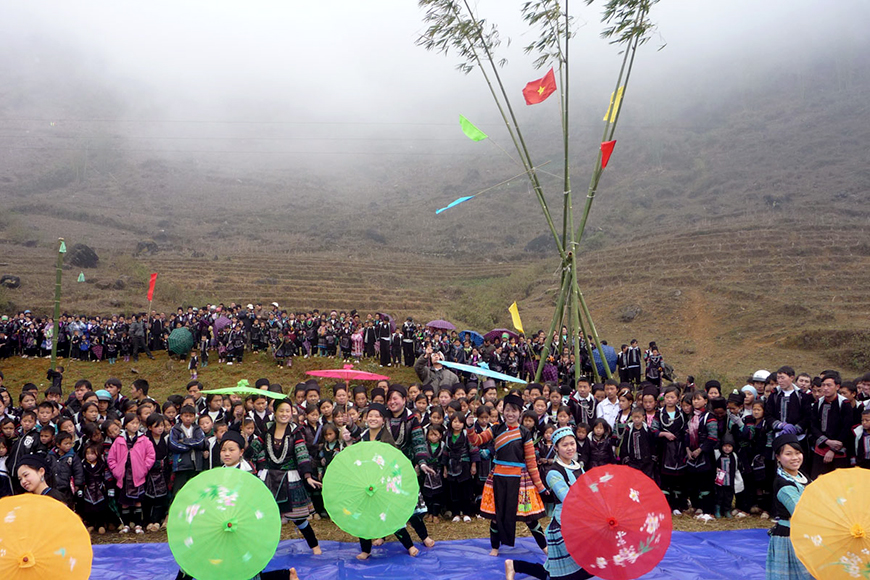
Nao Cong
Taking place in June on the lunar calendar, Nao Cong Festival is attended by people of the H’mong, Dao and Giay villages in Moung Hoa Valley. Each family sends one representative to the festival to pray for a good second harvest, and it’s believed by paying their respect to the correct spirits, they will ensure favourable conditions and bountiful harvests.
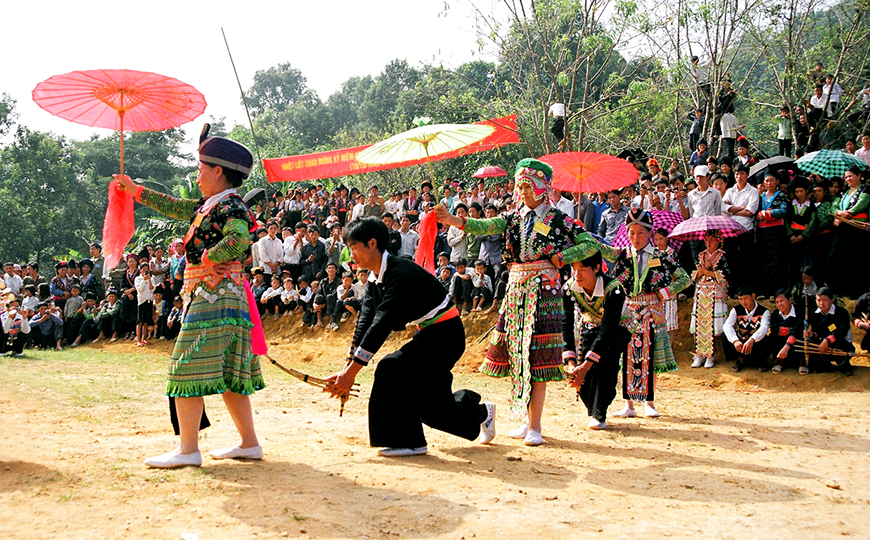
Tet Nhay
Tet Nhay Festival is a Dao celebration held during the national holiday of Tet, which is celebrated throughout Vietnam. On the second day of Tet, the Dao gather in Ta Van to offer thanks to their gods and pray for happiness in the coming year. The highlight of the festival is a traditional ceremonial dance which is performed around a central altar. Other cultural activities at the festival include paper craft and sculpting.
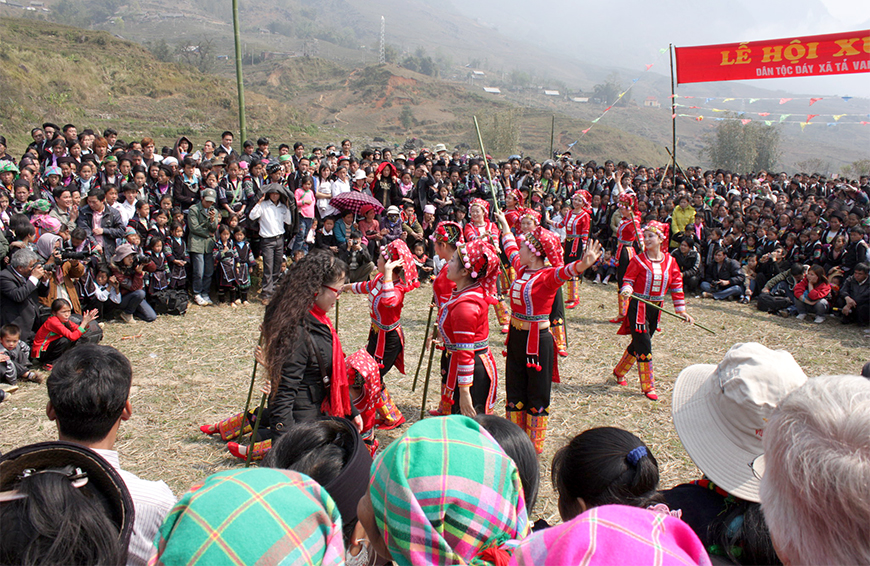
Gau Tau
Gau Tau is a H’mong festival organized by individual families within the community, taking this responsibility in turns. The hosting family invites the village shaman to help them express gratitude to the gods and ancestors, as well as pray for prosperity and happiness. After the completion of the ritual, the whole village will join together with traditional sports and dance competitions, all set to a soundtrack performed by traditional instruments.
